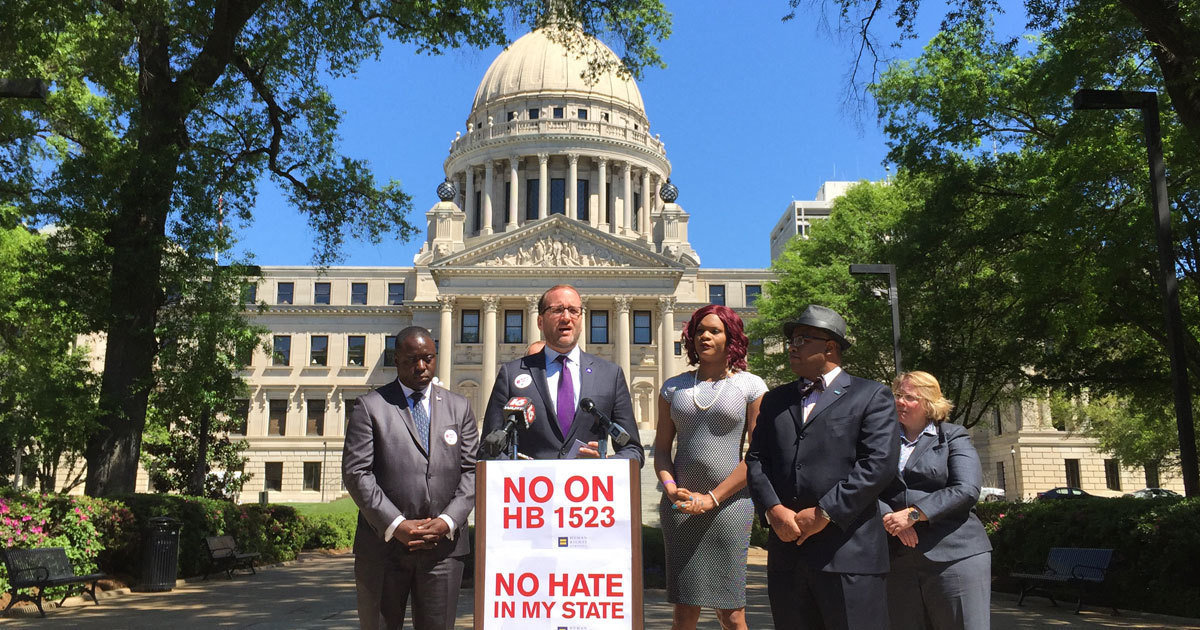
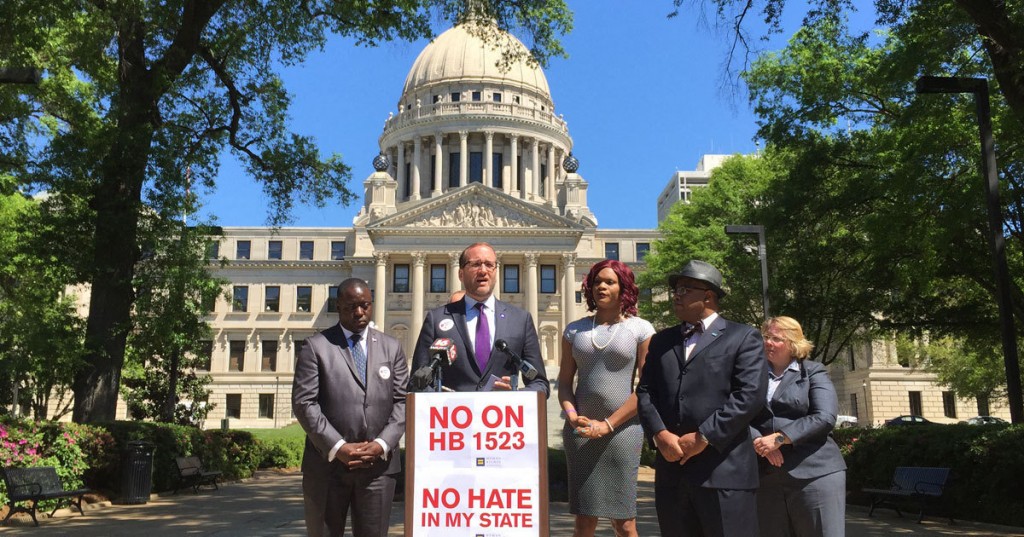
JACKSON, Mississippi (AP) — As the Mississippi Senate sparred in one of its most contentious debates of the 2016 session, spectators watched intently from a balcony overlooking the chamber.
In one group sat several state leaders of the Pentecostal church who were supporting House Bill 1523, also called the “Protecting Freedom of Conscience from Government Discrimination Act.”
A few seats away sat Rob Hill, Mississippi director of Human Rights Campaign, one of the groups that said the bill could lead to state-sanctioned discrimination against lesbian, gay, bisexual and transgender people.
The bill says government employees, religious groups or privately held businesses may cite their own deeply held religious beliefs to deny services to people. Those protected beliefs are limited to three:
— That marriage should only be between a man and a woman.
— That sex should only take place inside such a marriage.
—That a person’s gender is set at birth.
While opponents such as Human Rights Campaign and the American Civil Liberties Union demonstrated at the Capitol and outside the Governor’s Mansion against HB1523, supporters of the bill, such as the Pentecostals, have longstanding connections with many of the politicians considering the legislation.
Every summer, the Mississippi District of the United Pentecostal Church International has a camp meeting in Raymond that’s a magnet for conservative office-seekers. While they might not make speeches, politicians have been going there for years to sing, pray and shake lots of hands.
HB1523 was also supported by the policy arm of the largest denomination in the state, the Southern Baptists; and by the Tupelo-based American Family Association, a conservative religious group with a radio network that reaches large portions of the state.
Republican Gov. Phil Bryant signed the bill last week, soon after it passed the Senate and House. It is set to become law July 1, although it could be challenged in court.
“This bill merely reinforces the rights which currently exist to the exercise of religious freedom as stated in the First Amendment to the U.S. Constitution,” Bryant said in a statement.
The Mississippi Economic Council had not yet taken a public stance against HB1523 when the bill was moving through the Senate. The MEC opposition came later, as business groups were denouncing similar bills in other states.
The Public Rights/Private Conscience Project at Columbia Law School issued a statement saying more than a dozen law professors — including some from the University of Mississippi and Mississippi College — analyzed HB1523 and found that the bill “without question disrupts the balance between religious and secular rights and oversteps the limitations on state action set out by the Establishment Clause.”
The professors noted the bill’s protection of beliefs about marriage, sexual relations and gender identity.
“Only these narrow beliefs are protected, although they are far from universal, even among religious individuals or denominations,” they wrote. “Those who will be most harmed by this law are LGBT Mississippians, intersex persons, persons who defy sex and gender stereotypes, and persons who have had sex outside marriage— the most easily-identifiable of whom are unmarried parents and pregnant persons.”
HB1523 says a circuit clerk could deny a marriage license to a same-sex couple but would have to take “all necessary steps” to ensure a license is not delayed. However, legislators did not fully explain what would happen if all employees of a clerk’s office cite the same religious objections.
The bill provides no money for counties to hire extra deputy clerks, if that’s what would be needed to find someone willing to issue a marriage license to a same-sex couple.

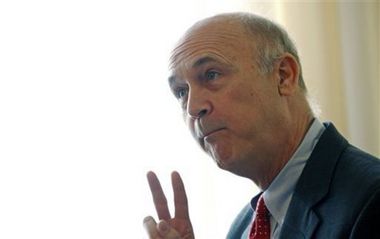
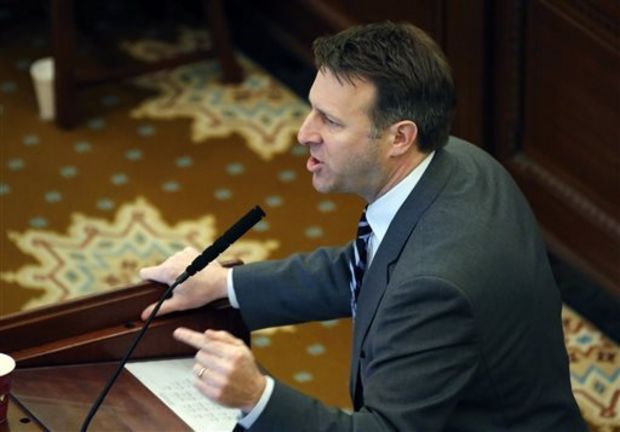
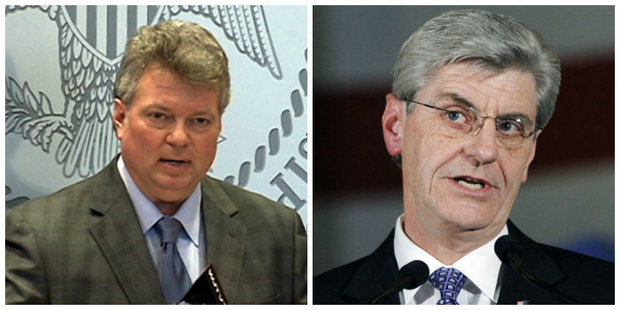
Be the first to comment